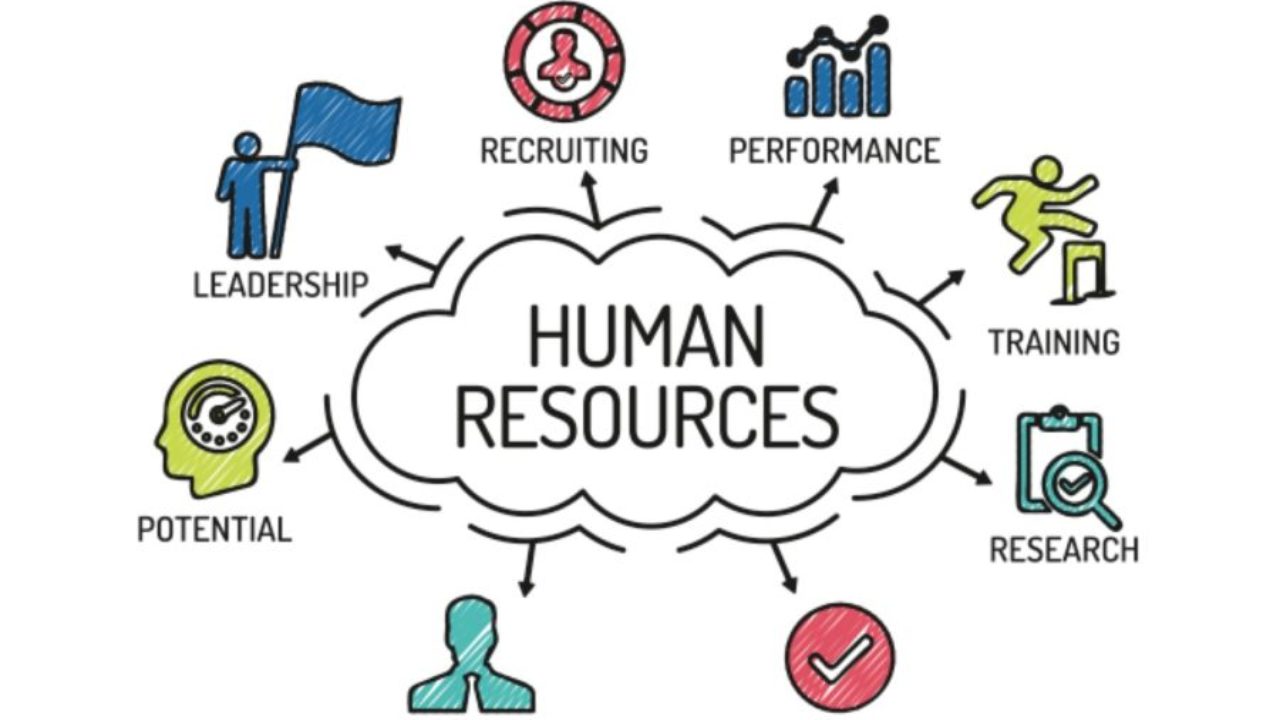Are you looking to opt for human resource management as a career? Well, you are on the right track for a bright future. Human resource management is one of the trending course pursued by scholars. There are graduate and postgraduate courses available in this field, and many educational institutions provide the same. Formal education can hone your HR skills, and you can become an example for upcoming aspirants. It was ranked 4 in the top ten jobs worldwide by Money Magazine in 2007. If you are a high school passed out student and confused about which career to choose from engineering? This profession is best for you, and this post will guide you to enter it.
What is meant by Human Resource Management?
Human resource management means a strategic approach for an effective management of individuals within an organization, i.e., helping their business gain a competitive advantage. It is designed to maximize employee performance in the service of the employer’s strategic goal. They are primarily concerned with the management of individuals within organizations, focusing on policies and systems.
Departments in human resources are responsible for designing employee-benefit programs, employee recruitment, training and development, performance evaluation, and reward management like bonuses and other benefit systems. They are also concerned with organizational change and the balance of organizational practices with the requirements arising from industrial relations or collective bargaining and government legislation.
What do human resources do?
Human resource management (HRM) professionals perform particular set of duties aimed at effectively managing an organization’s employees, known as human resources. Professionals in this domain oversee the business of managing the workforce in a workplace, including salary, incentives, training, staffing, and other HR management duties. They perform several staffing activities like to recruit and retain the best talent by making the company competitive and respecting their potentiality. The best talent will be retained by the workplace and remain working for the employer. Human resource professionals’ role has turned critically important to remain viable in the marketplace in today’s rat race environment. Organizations can replicate the process and structures of other successful entities. It’s the HR who retains the talent, which helps in boosting the organization’s growth.
Job description: HR Manager
The human resource manager is responsible for directing the routine functions of the HR department. It includes interviewing candidates, employee evaluation, compensation, leaves, and enforcing company policies on the workforce.
Key duties and responsibilities
- Partner organizations with a leadership team to uniquely understand and implement the HR and Talent Strategy for current and future talent needs, recruitment, retention, and legacy planning.
- HR manager assist and guide to the higher management and other employees when complex, specific, and sensitive questions and issues arise. They may require to perform and maintain normal tasks in sensitive situations such as providing proper accommodation, investigating, and termination of employees.
- They manage the talent acquisition process, including interviewing and hiring job applicants specifically qualified for relevant job roles. They collaborate with departmental managers to understand the skills and competencies required for the inauguration.
- Analyzing compensation and benefits trends. Investigates and proposes a competitive base and incentive payment programs to attract and retain top talent.
- Creates learning and development programs for the workforce that provide internal development opportunities for employees.
- Complies with central, state, and local employment laws and regulations and recommends best practices for the organization. They also review policies and practices to maintain compliance.
- They bring regulatory changes, maintain current trends, perform best practices and new technology in an organization.
Major Functions and Challenges
HR professionals face many different challenges as they need to handle day-to-day situations in the workplace. In this profession, you need patience and flexibility when interacting with a wide range of experience, intelligence, emotional intelligence, education, knowledge, communication skills, and abilities. In the early stage of your career, you may be involved in compliance-related jobs that demand strong business knowledge and good communication skills.
From a strategic perspective, enforcing the company’s policies and practices, you become the “voice of management” for employees. You will be called an advocate of employees who need to ensure that their perspective is represented to higher authorities. As a supporter of business and public perspectives, diplomat skills are required. Voice judgment, good listening skills, and strategy making skills are much needed in this profession to influence the ability to connect people’s strategies with business strategies. HR professionals act as a bridge between the workforce and employees. As an HR professional, you should have the ability to prove the value that human capital adds to the organization’s bottom line.
Formal education in HRM
There are plenty of academic institutions worldwide offering graduate and postgraduate courses in Human Resource Management. It depends on a various factor which one you have to choose. Several scholars switch to this domain from engineering, accounts, and others. If you choose a Masters’s degree in this program, you get an opportunity to enhance your expertise in this profession while building a broad base of understanding the HR management skills. Many tools help you achieve professional goals; a Master’s degree in this domain is one of them.
- According to several academic experts, there are several benefits of pursuing master’s in it.
- Your earning potential will increase.
- There are plenty of job options in HR management, like HR managers, HR specialists, HR generalists, etc.
- It can satisfy your curiosity and give you a chance to strengthen your depth of knowledge. With the Master’s degree, you can dive into the range of opportunities that interests you.
- Masters in HRM covers topics like organization’s work culture, business management, human resources, organizational management, and others. With this range of courses, you can understand the business culture in modern times.
- Job growth in Human resource management is higher compared to other profiles. US Bureau of Labor Statistics estimated that HR jobs are expected to grow from five percent to 2022. Consequently, firms will require more HR professionals to play integral roles for them.
- As you all know that network and referrals in modern times are crucial to getting a new job. If you don’t have any reference or network with any staff, you may suffer. Master in HR will allow you to build networks in the HRM domain.
These few advantages will clear your concerns related to Masters’s in HRM. If you are one of the aspirants studying it, you may require a Human Resource Management Assignment Help get well-versed with HRM’s academic concepts. Students worldwide seek this assistance to complete their academic papers and study effectively for exams. If you need a promising grade, seek this assistance.
Entry level jobs in HRM
1. Payroll manager
In large corporate, whether it’s national, internationals, or any government agencies, payroll plays a large part in the duties of the human resources department. Often, entry-level positions in human resources are associated with payroll job roles. They must oversee employee time cards, handle processing vacation and sick day requests, and other tasks such as pay and hourly pay.
2. Training manager
If you are not trained for the job role, training is required before on-boarding. Employees need to follow continuous training throughout the organization, from safety guidelines to new processes or equipment. To ensure that the training is adequately documented as per the organization’s requirement, HR departments usually oversee the planning, development, and administration of training sessions and equipment. The entry-level position in this area allows employees to assist in each of these tasks.
3. General Human Resources Assistant
General human resources assistants are small to medium-sized enterprises; entry-level employees are often assigned everything from training, payroll, and developing organizational culture.
These are a few of the entry level positions provided by the HR department of the organization. These job profiles depend on various factors like location, size, and organizational structure. Whichever profile you choose, the opportunity to gain experience and knowledge in entry-level HR jobs will lay your strong foundation in this domain.
Conclusion
Human Resources management is a promising career and gives plenty of rewards and incentives. There are plenty of job roles and a range of options that you can explore. No matter how big-name you are in the global marketplace, without HRM, you can’t grow. HRM retains good talent and helps you build a good team that fosters organizational growth.
We mentioned the benefits of pursuing formal education. From a strategic perspective, this domain is perfect to choose as a career. Learn new skills and manage the organization’s culture. If you want to become an advocate of employees, choose this profession only.
Summary: Human resource management is the management domain that acts as a bridge between employees and higher management. The post summarizes benefits, key challenges, pathway to pursue it (formal education), and entry level jobs in this domain.


